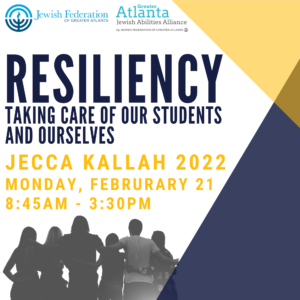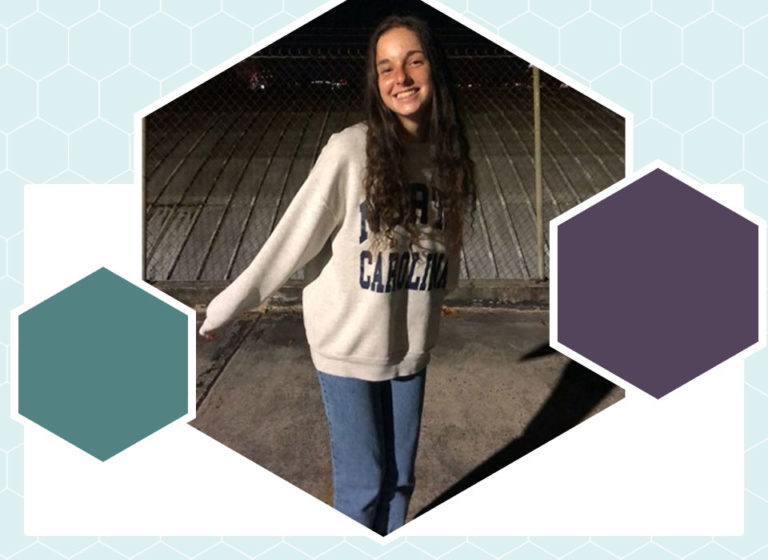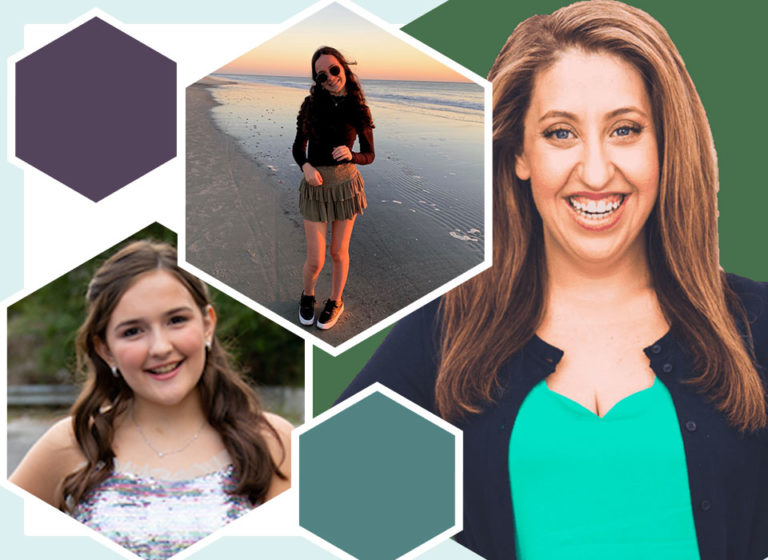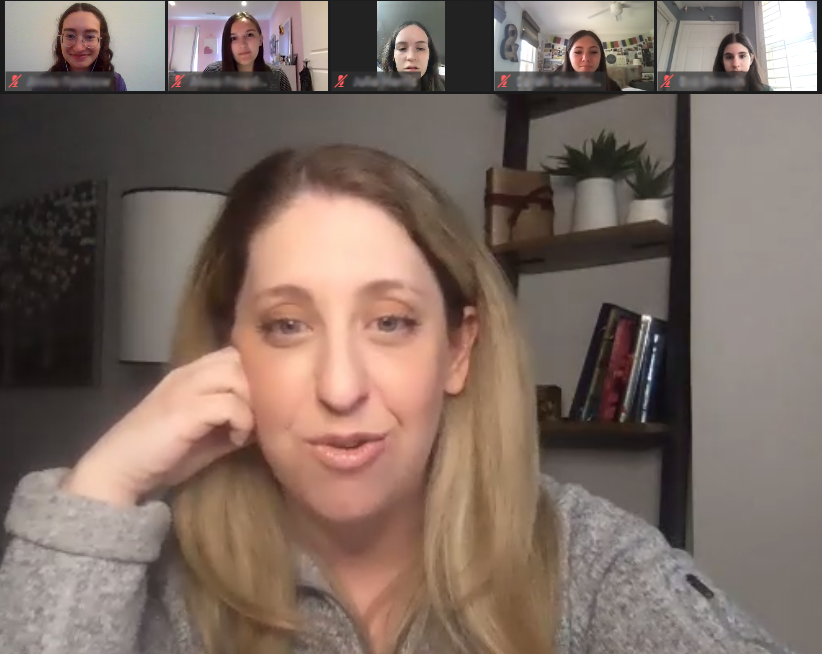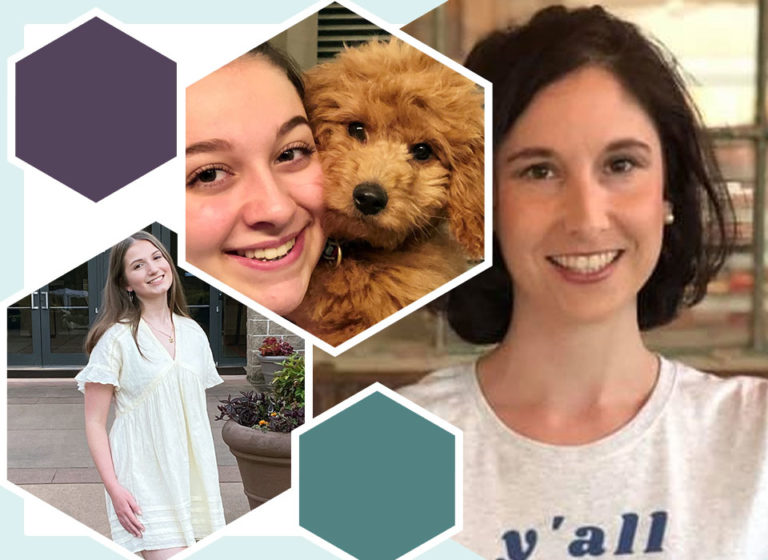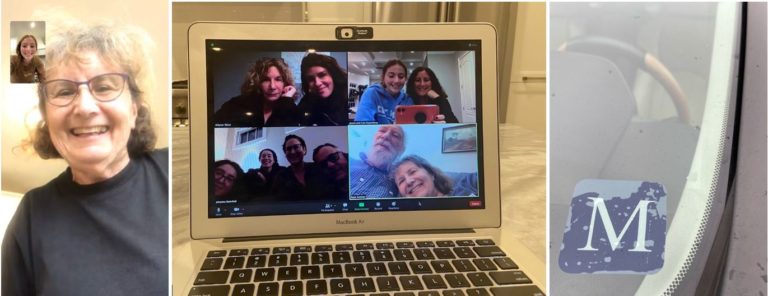“I hope to gain a better understanding of what obstacles woman must deal with every day and how to become a better leader to impact my community.”
“I hope to further my leadership experience and learn new ways to take part in society and speak up about important issues.”
These were just a few of the sentiments shared from Strong Women Fellowship applicants for the 2019-20 cohort, a group of teens I would get to know well and have the privilege of working with to grow the Fellowship into the robust, action-oriented leadership program it is today. I remember sitting in the JumpSpark office when I first started my role as the Engagement Manager of JumpSpark, feeling so much hope for the future of our country. I found myself feeling inspired by the drive and passion I saw in these teen leaders to change the world for the better.
Two years later, as I wrap up my final days on the JumpSpark team before leaving for graduate school at Brandeis University’s Hornstein Jewish Professional Leadership Program, I find myself reflecting on what I have learned. I continue to look forward to the future with hope and possibility having now seen what our teen leaders and those that support them are capable of achieving. I am excited to share some of the learnings from the role that I will continue to use well into the future.
Teens Feel Seen and Heard Through Meaningful Action
One of JumpSpark’s goals is to amplify teen voice in our community, and last year, I had the opportunity to dig into what this meant through participating in UpStart’s Change Accelerator program. Through focus groups and interviews with our Strong Women Fellows, I discovered that these teens would feel seen and heard through taking action to create positive change in the world using their unique skills and passions. I found that it is easy for one to feel disillusioned by the weight of the world’s problems and unsure of how to use their voice for change. During the Strong Women Fellowship, teens hear from speakers and gain new passions that they strongly desire to amplify in the world. Building in new opportunities for action will allow the teens to have a positive impact in the communities we serve and help the teens feel seen and heard as stewards of our changing world.
This year, the Strong Women Fellowship will incorporate action into every speaker event, from advocating for LGBTQ+ justice to volunteering at a women’s shelter. Taking these actions will allow for these teens to amplify their efforts as budding Jewish changemakers.
Collaboration Makes Us Stronger
Throughout my time at JumpSpark, I have had the opportunity to watch our Community Partner Network of teen-serving professionals grow and gain strength. I witnessed a shift in our community towards more collaboration, towards people calling on others in similar roles for support on programs and combining forces to create high-quality Jewish opportunities for teens. I myself leaned on collaboration to support so many of our initiatives, thinking strategically about who we could partner with to reach more teens and build stronger programs. Throughout the rest of my career, I will embrace collaboration in creating new initiatives, knowing that it leads to more robust opportunities.
JumpSpark is excited to continue strengthening the network of Jewish youth professionals in Atlanta. The Community Partner Network is beginning its third year with spots for 40 partners, and JumpSpark will be hosting convenings with professional development and networking opportunities twice a month to encourage collaboration and relationship building in the field.
Parent and Teen Engagement are Interconnected
One of the first findings that struck me from JumpSpark’s data and evaluation efforts was the interconnectedness of parent and teen Jewish engagement – if we engage parents Jewishly, their teen is more likely to get involved in Jewish opportunities and vice versa. Throughout my time at JumpSpark, I have seen this finding play out. Just the other day, my coworker shared about a parent she engaged with through one of our parent programs who then enrolled her teens in Jewish programming as well. Because of anecdotes like these, I see the value in parent engagement as a tool to further teen engagement, too.
This year, we are excited to continue supporting parents through a variety of initiatives, like Project Launch for parents of teens just entering their next phase after high school and PhD in Parenting sessions for parents of younger teens. These powerful tools for engagement raise the bar for the family unit as a whole, and I will be excited to see what other new and innovative initiatives crop up for parent engagement at JumpSpark.
Teens are Today’s Changemakers
I have heard time and time again that teens are our future leaders. After my two years working with teens at JumpSpark, however, I can definitively say that teens are the leaders of NOW. Teen initiatives across the world are making waves and creating positive change. I have watched right here in Atlanta as teens themselves contributed to creating innovative Jewish programming and strengthening our Jewish community. I witnessed countless teen initiatives crop up to support those most vulnerable during the pandemic. I continue to be inspired every day by the teens in our community and throughout the world, and I am so grateful to have been able to play apart along some of these teens’ journeys. Look around – teens are making change today, leading us into a future that is more inclusive and just.
All of these learnings and more will continue to guide my Jewish professional journey for the rest of my career – I am excited to take all of the lessons garnered from the teens, parents and professionals I have had the privilege to work with at JumpSpark to my graduate studies in Jewish Professional Leadership and beyond. I am so grateful to JumpSpark and the Jewish Federation of Greater Atlanta for guiding me on my Jewish journey and shaping me into the Jewish leader I am today. L’hitraot Atlanta, see you soon.


